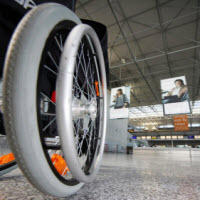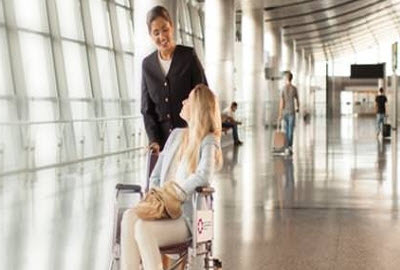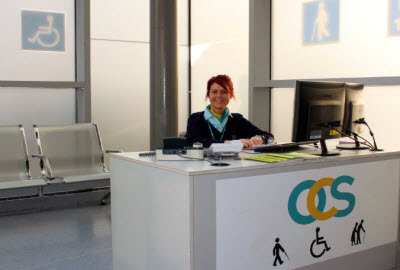Can culture make flying less accessible?
- Written by Roberto Castiglioni
 Physical or sensory impairments should not prevent a person from travelling by air, but a previous bad travel experience might.
Physical or sensory impairments should not prevent a person from travelling by air, but a previous bad travel experience might.
I have spent the last five years of my life understanding what makes air travel less accessible to people with disabilities.
I approached the task with a simple, yet ambitious plan: listen to passengers and the air travel industry; cross reference their experience and problems with legislation; detect areas that need improvement or change; work with policy makers and the industry to help people with disabilities travel by air.
Complaint analysis is source of invaluable information. Dealing with passengers’ complaints on daily basis is crucial in helping me spot issues and identify what does not work.
Complaint handling is also the process where airports and airlines miss the opportunity to learn and improve. I am sure my friends at customer service departments understand what I am about to say. Whether they will listen is a whole different story.
Airlines and airports often handle complaints with the goal of moving past the problem as quickly as possible. Read a standard reply and you will understand there was no effort made to understand the core of the incident, let alone a process analysis to help prevent the problem from repeating itself.
I can’t stop shaking my head when reading some replies to passenger complaints. “We take assistance to disabled passengers very  seriously,” is a common starter. I wonder which marketing guru came up with this empty phrase. Come on, if you took assistance very seriously you wouldn’t be getting complaints!
seriously,” is a common starter. I wonder which marketing guru came up with this empty phrase. Come on, if you took assistance very seriously you wouldn’t be getting complaints!
Does it make any sense to apologise unreservedly and throw in a little perk to move past the incident if the problem is not analysed and the underlying process corrected? Perhaps a different cultural approach in addressing problems related to human diversity could be the answer.
Few weeks ago I was reviewing the report of one of my mystery shoppers. Dang! The cat is out of the bag. Yes, Reduced Mobility Rights has an undisclosed number of “mystery shoppers”, people with physical and sensory impairments who make a checklist every time they fly.
Passenger A travelled from the UK to Spain. This passenger requires two to one help due to the severity of his/hers physical impairment. I am pleased to say the report is positive. A received adequate aid throughout the journey. Yet, A’s notes made me think.
“Everything was fine, but I felt more like a piece of luggage than a person,” A wrote. In my research on European airport accessibility published in 2013 I mentioned that passengers’ perception is influenced by cultural differences.
“It is common to hear passengers praise the ease with which southern Europeans connect, while complaining about the detached approach typical of populations from the northern countries of the Union,” the report said.
 The mystery shopper’s comment goes above and beyond the cultural divide. I went back to read comments of other mystery shoppers and spotted a pattern.
The mystery shopper’s comment goes above and beyond the cultural divide. I went back to read comments of other mystery shoppers and spotted a pattern.
Do you ever feel your mind finally connecting all pieces of the puzzle and all random thoughts finally merge into a meaningful concept? We can craft the best possible anti-discrimination laws and write the best handling and awareness training protocols. We can get it right on paper, but we have yet to find the way to make some people accept disability as part of the human landscape.
We all know that changing culture is a slow and painful process. But there is a shortcut to make sure airports can give disabled passengers a dignified experience: tighten hiring criteria for staff working with disabled people. Will it make a difference? You bet.










